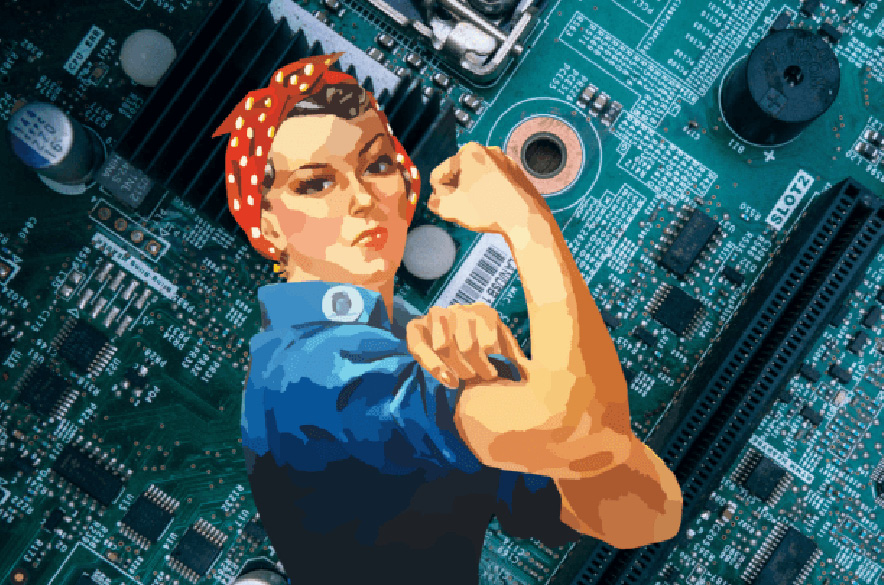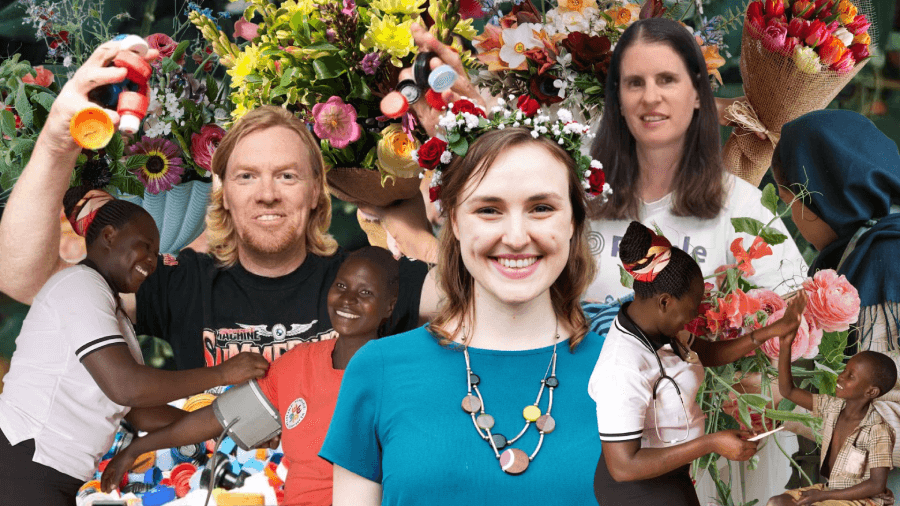Social change involves alteration of the social order of a society.
Phew, that sounds like a lot of work.
While the earth continues on its axis, what is the actual problem with maintaining status quo; why is history littered with courageous and curious folk who find it necessary to take the unpaved road to change?
The impetus for social change has various sources, not least of which is conflict caused by social division based on class, caste, gender and ethnicity.
The percentage of women working in technology in Australia is only 28%.
And… this is why WiTWA do what they do and what the WiTWA 2019 Tech [+] 20 Awards are all about.
The leaky pipeline
Pick up any literature on the topic and you will read about the ‘leaky pipeline’ that contributes to the lack of female representation in STEM. With Australian statistics revealing that two thirds of children aged nine to 11 produce a picture of a man in a white coat when drawing a scientist, it is no surprise that historic gender biases and stereotyping have led to entrenched patterns that are harder to remove than chewing gum in a ponytail.
26.3% of year 12 girls are enrolling in Information and Communication Technology and Design and Technology subjects, in comparison to 39.4% of their male peers.
Early intervention is crucial. Educating and peaking the interest of young girls in STEM subjects and extolling the virtues of STEM related careers is pivotal to patching the first part of the pipeline.
There is a myriad of programs being run across Australian schools for this very purpose. The programs are designed to generate passion, excitement and interest to inspire young people to consider careers in science, technology, engineering and mathematics.
You can’t be what you can’t see
What has been adopted as a catch cry advocating for upstanding role models across any chosen field is also right at home when adding reinforcement to that leaky STEM pipeline.
With a lack of female role models and little celebration of the historical few that have contributed to STEM [think Radia Perlman vs Steve Jobs and Katherine Johnson vs Stephen Hawking] this one is an obvious remedy.
Role models provide people with a blueprint; an opportunity to inspire and shape the behaviours and actions of those around them. For young girls and women looking to change careers, having access to successful women in STEM is directly correlated to an increased likelihood of them considering STEM as a career.
Issues such as imposter syndrome, lack of confidence and reduced opportunity for advancement [already] plague women across industry and profession; these are only amplified when pitted against the statistically significant under-representation of women in STEM careers.
A number of STEM related industry and support groups now exist to provide an opportunity for women to meet like-minded professionals and gain from a collective support and advancement of diversity and equality in these fields.
The power in being able to connect with people who have similar experiences and professional issues is not to be underestimated. Positive outcomes include an increased self-esteem, mentorship and opportunities to proactively address common themes.
Females achieving success and satisfaction in their chosen STEM career will slowly replace the balding male scientist in a white coat in classrooms Australia-wide.
Champions
Providing exposure, opportunity and a level playing field is necessary to recruit and maintain young girls and women in STEM careers.
With STEM skills playing a crucial role in innovation, and innovation a driver of economic growth, this is no longer about just getting a seat at the table. This is about acknowledging the significant contribution of women and ensuring that numbers of women represented in STEM increase to realise the true potential of that growth.
$12 trillion could be added to global GDP by 2025 by advancing women’s equality.
That’s a lot of money. And that’s a big statement.
If the earth spinning on its axis is impacted so significantly by the advancement of women – then where do I sign up?
But first, there is a lot of work to be done and a lot of historic gender modelling that needs to be undone.
It’s about educating and informing employers and professional bodies; creating opportunities for re-learning or re-entering the workforce, demanding pay parity, facilitating flexible working arrangements, challenging the attitudes of antiquated male peers and harnessing the sponsorship of male champions.
Do you know an inspiring female tech role model? The 2019 WiTWA Tech [+] 20 Awards champions diversity and equality for women in tech by recognising inspiring female tech [+] role models in Western Australia. Nominations are now open and close on 31 July, so don’t delay! Make your nomination today!
Aparna Burke is the Communications Advisor for RSM Australia. Not afraid to disrupt the status quo, Aparna identifies as a change agent and is constantly seeking ways to enhance and improve business. Aparna is a communications professional experienced in relationship management and strategy development with a special place in her heart for copywriting and creative content development. Aparna serves on the WiTWA communications sub-committee and relates closely to the plus in WiTWA Tech [+] as she doesn’t identify from a STEM background. She champions strong female role models and diversity and inclusion in the workplace.




2 thoughts on “Female Changemakers: Creating Social Change with Tech”
Pingback: Social Good Blueprint | Good Soup | People Helping People
Inspiring article. I also like to suggest Lisa Cox, a disability influencer. After her brain haemorrhaged at the airport one morning, she spent the next three weeks in a coma and two month on life support. Pneumonia, heart attacks and uncontrollable seizures took hold of her body as all of her organs shut down. But, after that, she made all the difference. You can read more about her https://lisacox.co/about/
Comments are closed.